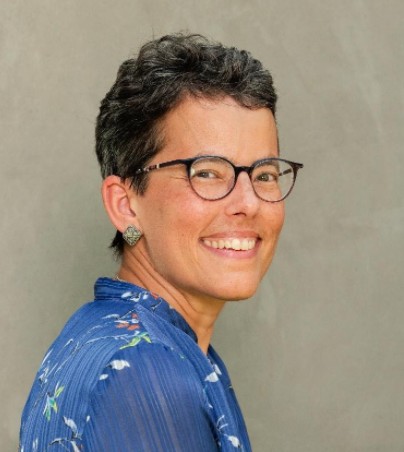The Jewish Coalition for Literacy is determined to eliminate childhood illiteracy, drawing upon trusted relationships with its tutors, students and the schools the organization services. And while the pandemic has required operational adjustments, the nonprofit is forging ahead into the new school year with its mission to help disadvantaged school children learn to read.
JCL was founded in Boston in 1997 and began its work in the Bay Area in 1999. Under the guidance of Bay Area Director Lisa Peckler, the organization trains and supports tutors and adds books to home libraries.
“We also engage parents and teach them how to read at home with their child,” said Judy Pam-Bycel, JCL program manager.
The nonprofit works with 50 Bay Area K-5 schools, mostly public and some charter schools, typically in underserved school districts. JCL counts more than 250 volunteer tutors on its current roster, and the tutors serve more than 700 students in the region. JCL trains and places the tutors, and matches them with struggling students at the schools.

“A caring relationship with a caring adult is what we offer in great measure — plus having a shared learning journey between tutor and student,” Peckler said, noting that JCL provides an opportunity for people from different socioeconomic backgrounds to learn from one another. “We encourage our tutors to bring their whole selves to what they do.”
Marlene Stein, who has tutored with JCL for nine years, epitomizes the “whole self” philosophy and approach of the nonprofit, driving pre-pandemic from Alamo to tutor a young student at the Richmond College Prep Schools.
Stein started working with a first grade girl who could not read and eschewed social interaction at school. They studied together for two years, and by the third grade, their relationship had blossomed to where they could walk into a room, close the door and the girl would teach Stein dance moves.
By the fifth grade, the student was able to read at close to a third-grade level.
“We were consistent, and I always supported her. She benefited from the relationship of an adult not in the family,” Stein said. “I never chastised her, but remained positive. It’s the essence of what we do at JCL.”
“I know they provide great training at JCL,” said Tana Monteiro, who is in charge of the tutors at the Richmond charter school. Between six and 12 JCL tutors work with students at the school over a typical year.
The coronavirus has caused school closings and eliminated in-person tutoring over the past year and a half, and the nonprofit has changed its approach to tutoring, relying on Zoom calls and FaceTime to reach its students.
An unexpected consequence of the pandemic is that tutors, who are normally asked to give one hour a week to the organization, have found time to spend sometimes three and four hours a week with students because they no longer need to drive to in-person sessions.
Peckler said that one of the biggest challenges the organization faces is determining whether tutoring will remain online or return to in-person sessions this school year. And acquiring funding from major corporations and trusts always demands a significant effort.
“There have been cuts in the foundation sphere,” said Peckler, who is trying to increase the nonprofit’s revenue by $50,000 to reach a half-million dollars this year. “Individuals are (also) very important to helping us reach our goals.”

For those who believe in what JCL is doing, but have neither the time nor the inclination to tutor themselves, the nonprofit accepts donations online.
But Peckler said the organization is also always looking for new tutors.
“If you have ever thought you wanted to do this, the bar to entry is not too high,” she said.
“For a tutor, a positive attitude and flexibility are important ingredients for success,” Pam-Bycel said.
And the results can be rewarding, for both tutor and student.
“Another loving, safe adult kids can talk to and who listens to them? They love it.” Monteiro said.
